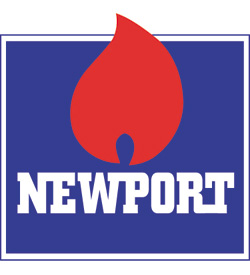A Guide to Newport Butane
When you think of high quality butane, what comes to mind? If you answered characteristics like a long lasting burn, safe to use, and butane refill cartridges with a truly universal design, then let’s talk about Newport butane from UK-based Keen-Newport. With an unsurpassed history of innovation, by way of example their ground-breaking torch lighter refill canister, Keen-Newport has been setting the standards in the refined butane market for over 50 years. Whether you are refilling a cigarette lighter, a culinary torch for crème Brule, or looking for extended life butane for your camp stove, Keen-Newport has all your needs covered.
A Quick History of Newport
In 1963, tobacco industry veterans Geoff Keen and Ron Gibbons got together one evening to share a smoke and talk shop. Eventually, conversation meandered its way to a popular topic: How to design, build, and market a reliable, innovative, and inexpensive lighter refill system when competitors like Colibri had already established a foothold in the industry. Soon afterward, the men settled on a design for "a fully destenched aerosol butane lighter refill with 5 separate adaptors to refill all existing butane lighters in the UK market place" and the rest is history.
What Makes Newport Butane Unique
Today, Keen-Newport’s position in the marketplace — under constant pressure from the likes of Power butane, Whip It butane, and many others — is secure thanks to the simple, sometimes-taken-for-granted design Gibbons came up with half a century earlier. The biggest problem with butane — even today — is storage, reliability, and a refill system guaranteed to work with virtually every butane-filled device on the planet. The company is known far and wide for its crenellated cap system that features "eight individually molded Newport adapters and two free Newport Universal Red Flints" that make the refill process safe, efficient, and cost-effective for all applications.
Let the Arguments Begin: A Newport Powered Camping Stove, or a Propane Model?
It may not be much of an argument, especially if you never thought of using Newport butane to power a camping stove. But the fact of the matter is many consumer products that are powered by propane also can be powered by butane. Case in point: the average outdoor camping stove.
When talking with experienced campers who use portable stoves for cooking, they usually evaluate the effectiveness of the device based on five criteria: heat of the flame, cooking capacity based on energy output, ease of connectivity, boiling point, and the role of hybrid fuels.
- Heat of the flame. This is basically a draw. Camp stoves powered by butane or propane burn equally hot.
- Cooking capacity. According to some reports, the average butane powered stove has about 12 percent greater energy than its propane counterpart, meaning a similarly sized bottle of butane will last longer than a bottle or cartridge of propane of the same size.
- Ease of connectivity. Most butane powered stoves feature simple to use clip-in connections, rather than the screw-on connection used by propane units.
- N- or normal butane has a boiling point of 31 degrees Fahrenheit, while propane is at -43degrees Fahrenheit. This means that propane does not work as well in freezing conditions.
Finally, there is a question of using butane-propane hybrid cooking stoves. Unfortunately, there is not enough data to give a firm opinion, so when all else fails — go with a device powered by Newport butane.
Use it or Store it
Butane, like other natural gas derivatives, is highly flammable. If you have purchased butane, make sure to use it promptly because it is volatile and needs to be treated with respect. Some other things to keep in mind:
- Butane should be stored out of the reach of children.
- Store the canisters or cartridges where they will not fall down or get bumped. Butane is under a lot of pressure, and puncturing the storage medium could be disastrous.
- Maintain the nozzle and keep it free of dirt, dust, or other debris.
Newport Butane MSDS
One of the defining characteristics of a reputable butane vendor is not only its history, but its policy of transparency when it comes to technical and safety information. If you have any doubt, check out Material Safety Data Sheet (MSDS) page for your favorite butane, and see what the results are. Not all butane manufacturers and retailers offer complete MSDS information. Keen-Newport, on the other hand, makes its complete butane MSDS available upon request — and updates it regularly to meet government regulations. Typical information you can find on a MSDS includes company information, hazard data, physical and chemical properties, and who to contact in the event of an emergency.
To learn more, browse right here at Butane Source, or subsribe to our Blog RSS, for the latest information on Newport butane.

